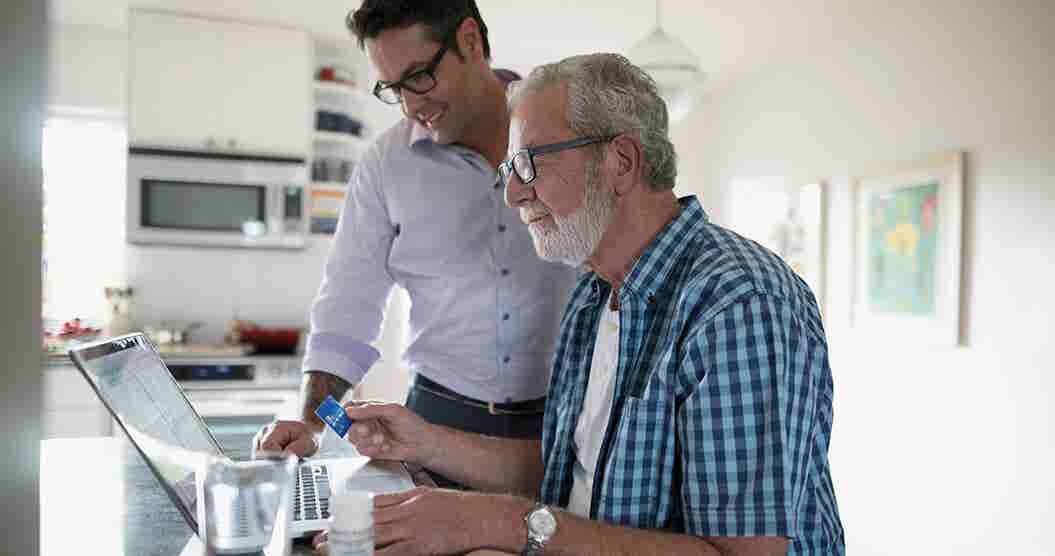May 31, 2023
Where You Can Find Financial Help During Coronavirus

If you’re concerned about how the coronavirus, or COVID-19, will affect your family’s financial stability, you’re not alone. With many Americans facing the prospects of layoffs and reduced hours, the federal government announced they are sending relief checks to many of those affected. However, these checks may not offset the full financial impact people are facing.
Fortunately, there are a number of resources for financial help during coronavirus, and more will likely emerge in the weeks ahead. The list below is not exhaustive, as different initatives are underway at the state and local levels. But if you need financial help immediately, these resources may be available to you. You can also use them as a jumping-off point to find out what's being done in your state or town.
Deferred tax payments
The IRS has extended the tax filing deadling to July 15th, and is allowing individuals to defer tax payments up to $1 million until July 15.
Unemployment assistance
The federal Families First Coronavirus Response Act provided $1 billion to help states manage the massive increase in unemployment claims they’ve received due to COVID-19-related layoffs. But there is still a great deal of uncertainty as to who can receive the benefits, along with problems filing claims online.
There are also a number of funds to help gig economy workers such as artists, musicians, and drivers (Lyft & Uber) whose livelihoods have been significantly impacted due to canceled events or decreased hours. Billboard has a state-by-state guide, as well as a list of national resources, for musicians. The list includes a range of assistance programs, including aid for those who have been financially impacted by the cancellation of Austin’s SXSW.
Gig workers in Orleans Parish, Louisiana, may be eligible for up to $1,000 in relief funds, and the state has relaxed its unemployment eligibility guidelines so more people can access the benefits.
Foreclosures and evictions suspended
Foreclosure and evictions across the country are suspended until at least the end of April. The government-sponsored mortgage entities Fannie Mae and Freddie Mac are reportedly working on financial assistance plans for homeowners who are struggling as well.
Credit card assistance
A number of credit card companies, including Citi, PNC Bank, Wells Fargo, Capital One and others, announced they’re willing to work with customers facing financial difficulties as a result of COVID-19. If you’re unable to make your payment, call your credit card issuers right away for assistance.
Free public Wi-Fi
Comcast, AT&T, and Charter Communications will provide free public Wi-Fi for 60 days. Other companies are increasing benefits for current subscribers. T-Mobile customers will get unlimited smartphone data, and Sprint is following suit with unlimited data for 60 days.
Expanded access to rental cars for students
Enterprise relaxed its rental restrictions until the end of May, allowing college students between the ages of 18-24 to rent cars, trucks and vans so they can leave campus and get home to their families.
Food assistance
The First Families Act could provide funding for emergency food assistance programs, as well as money for programs that help children who rely on their schools for meals. But there are many state and local food assistance initiatives in place as well:
- Many grocery chains are offering pickup and delivery, special hours for senior citizens to safely purchase food, and free services for older customers. Texas’s HEB brand is allowing seniors to order essentials online or on the phone for home delivery through the Favor service. Fees for the service will be waived for 30 days.
- Jose Andres' nonprofit is hosting popups offering free meals around the country in major cities like New York City, Chicago, and Baltimore. The group has served more than one million meals in 95 cities so far, according to The New York Times.
- Brad Paisley and his wife, Kimberly Payne Williams-Paisley, are opening their free grocery store, The Store, in March (a month ahead of schedule) to provide meals to seniors. The Store will deliver free groceries to elderly citizens in Nashville, Tennessee.
- SNAP recipients throughout the country will reimburse families up to $50 for food purchases made using their debit card. Instructions for how to enroll can be found here.
Free laptops
Organizations in some states are giving away laptops and other technology for students in the wake of school closures:
- Forty-five thousand Miami-Dade County students received free laptops in anticipation of school closures so they could practice distance learning.
- An elementary school in Tempe, Arizona also handed out laptops, along with free food, for students.
If you have a school age child, reach out to the school district and local nonprofits to find out where you may be able to obtain the technology needed to continue their education during school closures.
Late fees and shut-offs suspended by utilities companies
Some utilities companies have suspended late fees and shut-offs for non-payment. If you’re struggling to pay your utilities bills, reach out to your providers and ask about their relief options. Keep in mind that if you are able to pay, it’s a good idea to keep your accounts current.
GoFundMe Coronavirus Relief Fund
The fundraising platform GoFundMe has created a general relief fund to help those most adversely affected. The organization will distribute money to various campaigns based on need.
There are many local initiatives also providing food, childcare and other types of support during this time. Check your local Facebook groups, call your political representatives’ offices, and check in with charities in your area to find out what resources are being provided. And don’t forget to take care of yourself. Stay home as much as possible, stay healthy and practice self-care to keep your stress levels down. We’re all in this together!





